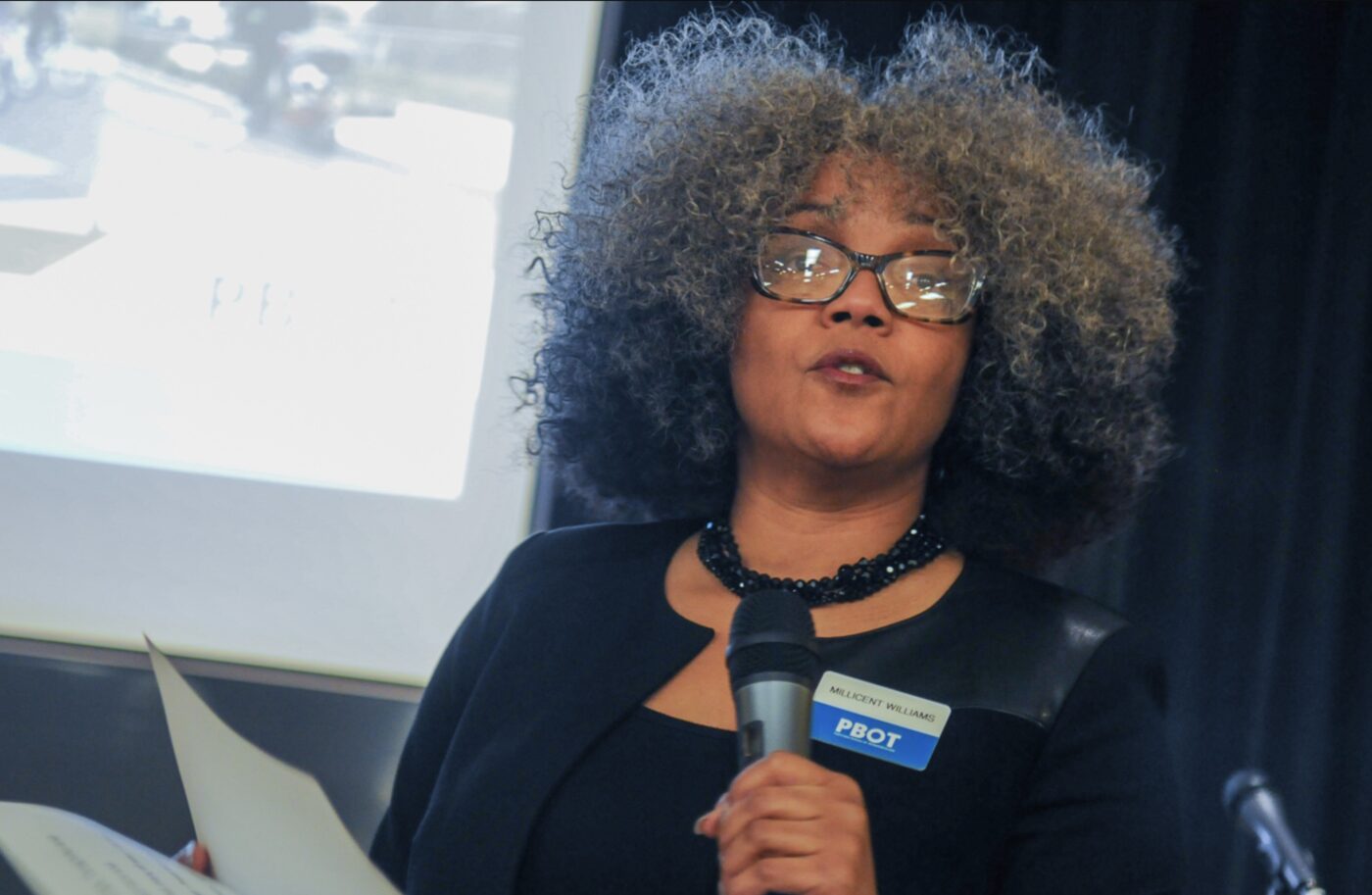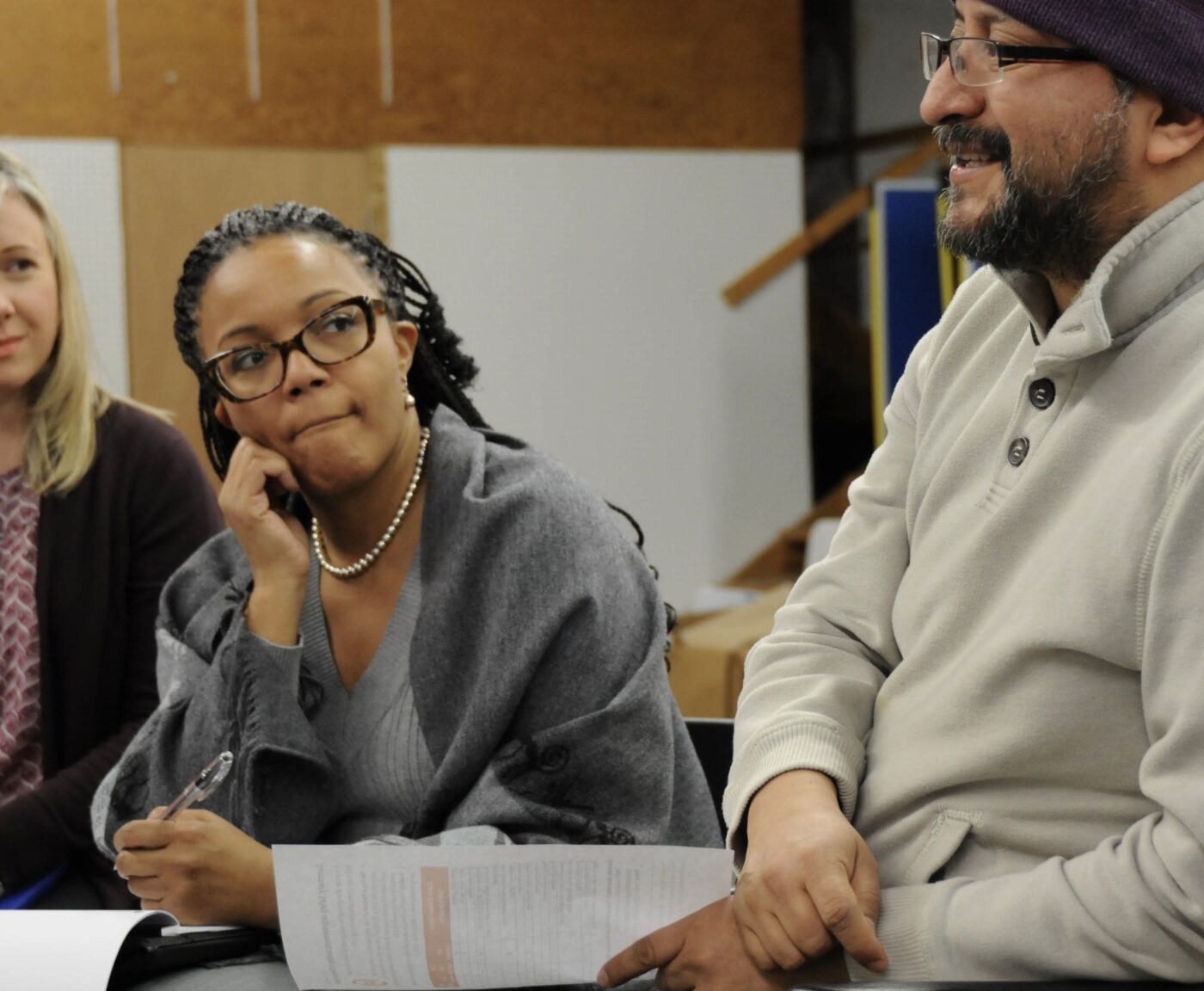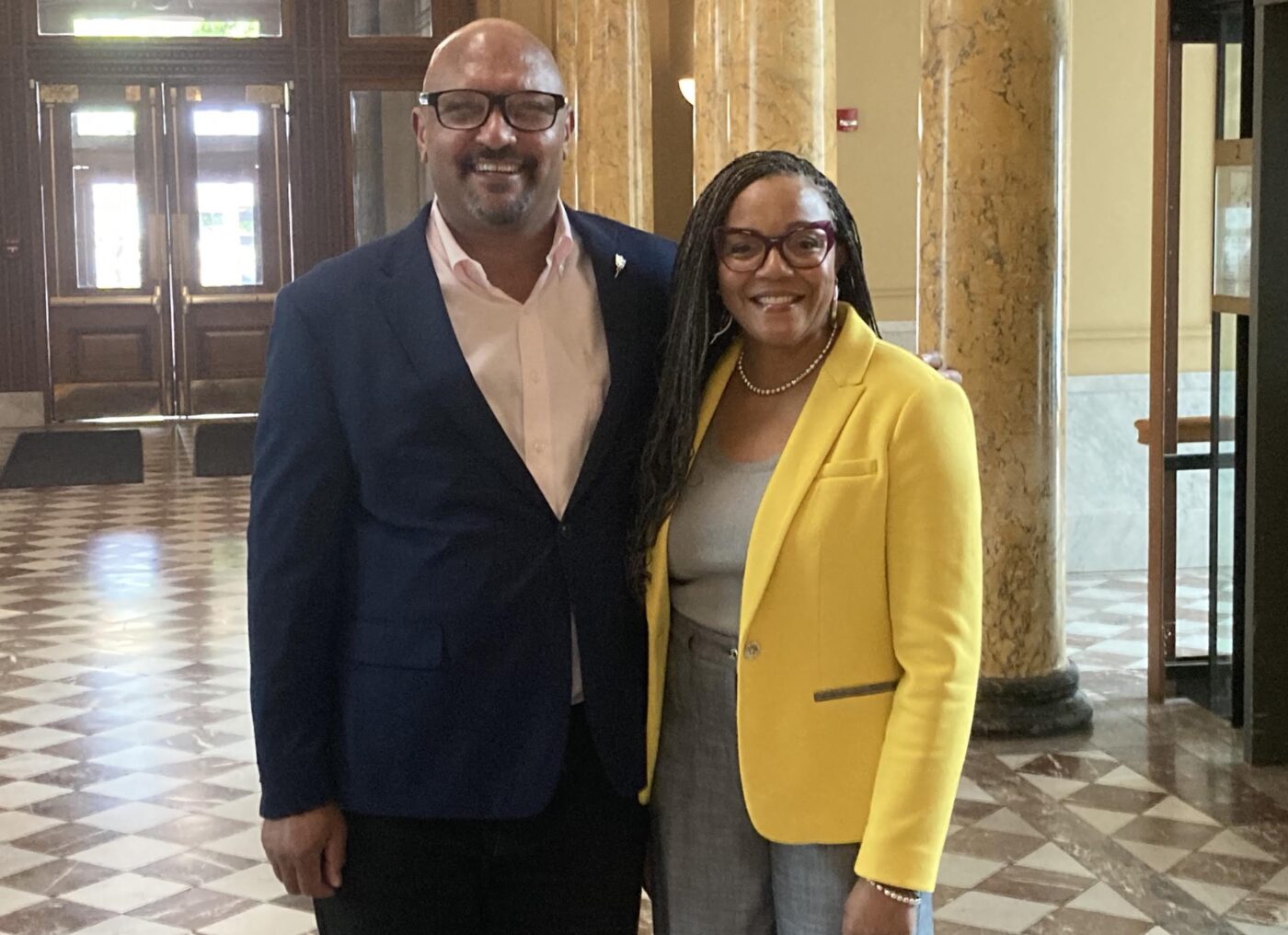

Millicent Williams is the new Director of the Portland Bureau of Transportation.
Williams is a former PBOT staffer who rose to the position of Deputy Director before leaving the city in May 2021. Before becoming deputy director, Williams was capital program division manager and most recently worked as regional director for Otak, a Portland-based engineering and planning firm. Williams also served as facilitator of the Equity Roundtable for the Interstate Bridge Replacement Program.
Williams fills the role left vacant since January when former director Chris Warner left to take a job with Oregon Governor Tina Kotek’s office.
Williams is the first Black woman to lead PBOT, and she arrives at a critical juncture as the agency is reeling with unprecedented budget challenges.
“I am energized by the opportunity to work with the dedicated staff at the Portland Bureau of Transportation in service to and in partnership with communities across the city,” Williams said in a statement. “At a time that when the bureau and city are facing tremendous challenges, I look forward to advancing PBOT’s work with compassion, viewing the work through an equity lens, considering the work in relation to our climate goals, and performing the work with excellence. Together, we will take a pragmatic, ‘Whole Community’ approach to problem-solving and embrace the promise of our future with optimism.”
PBOT Commissioner and mayoral candidate Mingus Mapps made the hire. He referred to Williams as someone who could make PBOT a “more pragmatic partner in building the future of Portland.” Mapps will put a tremendous amount of faith in Williams as his run for mayor puts more scrutiny on his leadership of PBOT and he looks to fulfill a promise to help the agency find its way out of a dark financial situation.
During her time at PBOT, Williams showed that she would not shy away from challenging conversations. In 2019, she led a tense PBOT meeting in a north Portland neighborhood that was debating whether or not to install a traffic diverter. It was a very notable meeting because PBOT was very up front that local residents would be allowed to decide if it should be built or not.
“We recognize that if we are going to be a bureau and city that demonstrates care, concern, and compassion for all, we have got to acknowledge our contributions to that pain and perform our work differently,” Williams shared with attendees, many of whom were Black. “Tonight’s conversation is for you. Tonight’s conversation is about you…This is your community and your project, let’s work together to get meaningful outcomes.”
Then in June 2020, just a month after the killing of George Floyd sparked nationwide protests over racism, Williams spoke out at a City Council meeting as part of a panel of guests to mark the Juneteenth holiday.
“I work in spaces where I know that my presence voice, access and expertise is unexpected, thought to be undeserved and often considered to be a threat,” she said. “I’ve worked across the full spectrum of public service and now I work in transportation, a discipline that has for many represented a sense of freedom, but for Black people has been a source of pain.”
Here’s more from her speech:
“I think about how a Black person was supposed to avert their eyes and step aside when they saw a white person on the sidewalk because silence meant safety. I think about redlining, road conditions, dissection and displacement in cities across America and a resultant forced silence which for some, if you weren’t subject to those things, meant safety.
Today I think about those examples and so many other things as we engage in solutions for communities across the city in managing the right-of-way and building infrastructure. As transportation professionals, it’s time for us to think differently about the industry, what it represents, and how we can influence the future.
At this juncture, either we will all be comfortable, or we’ll all be uncomfortable.”
In a statement from Commissioner Mapps’ office today, Williams said, “I look forward to advancing PBOT’s work with compassion, viewing the work through an equity lens, considering the work in relation to our climate goals, and performing the work with excellence. Together, we will take a pragmatic, ‘Whole Community’ approach to problem-solving and embrace the promise of our future with optimism.”
Williams’ first day on the job will be July 24th.
(Note: If you’ve worked with Williams and would like to share a comment about her for this story, please get in touch.)




